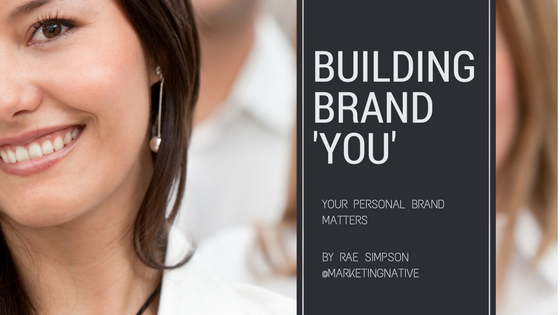Millions of words have been devoted to branding in business. A brand is a delicate combination of elements – from a logo, to a promise or a set of beliefs, through to how your target audiences perceive your products and services; and organisations spend millions each year on developing their brands. But there’s a new trend on the rise, and that’s personal branding.
Importance of building brand YOU
There’s a lot to be said about corporate reputation, but your own individual reputation and image are key to your career progression. When was the last time you really took a step back and thought about your ‘personal brand’? What I mean is: How do you think people perceive you in terms of skills, attitude, work ethic etc?
In today’s fiercely competitive jobs market, it’s tough to stand out. A good degree, years of experience and lots of extracurricular activities won’t guarantee that you’ll land the job, promotion, or client of your dreams, or that you’ll even get a foot in the door. The secret to standing out is to impress people – whether it’s a potential client or prospective employer – with the unique and authentic you – in person, on paper, and online.
What is a personal brand?
Your “Personal Brand” is a coherent, consistent and authentic online and offline persona, reflecting your strengths, interests and passions. Social networks, especially LinkedIn, provide a fantastic platform to showcase your abilities, and can be used as a medium to make contacts and develop relationships and potential opportunities.
Becky Leach, is a Leeds-based Sales Coach & Consultant, who recently completed a personal branding exercise after being inspired by a talk given by personal branding expert Jennifer Holloway. Becky says that developing her personal brand was key to re-branding and positioning her company and services in the minds of her customers and prospects: “If you don’t know what you are selling, how can people buy into it? It was very important to me to articulate what my personal brand was – as my business is called ‘People Buy People’! Becky goes on to say that by understanding your personal brand, it helps you work out “what makes you ‘you’ and therefore potentially how your business is different. It also gives you a way of communicating this to the outside world. Lots of businesses offer similar products or services but there is only one you! It’s about added value.”
Have you googled yourself lately?
Background checks on the web and social media are increasingly common in recruitment these days, and the number of employers that pass on job candidates because of something they found about them on social media is sharply rising. According to research by CareerBuilder, 51% of all employers are not hiring potential candidates due to something they discovered about them on social media.
There’s more to your digital presence than Facebook and Twitter though. Even if you’re only an infrequent web user you may be surprised by how often your name crops up on other websites; just try running your name through a search engine like Google or Bing. Now there’s nothing inherently wrong with having a ‘web footprint’ – you just need to make sure that what others are seeing represents you fairly and professionally. For example, publicly available Youtube videos or personal blogs are fine in theory, but if the content may be seen as rude or unprofessional it is best to make it private or delete it.
“Personal branding is a great way to communicate to potential clients what you are like to work with, it gives an insight into you as a person and, therefore, also into what you provide. Buying into a personal brand (person) – not just the company brand – builds confidence and trust in what you can offer” – Becky Leach, Sales Coach and Consultant
Your personal brand matters
Your brand is your reputation. It’s what you’re known for and how people experience you – it’s about bringing who you are to what you do and how you do it. Delivering your brand clearly and consistently will create a memorable experience in the minds of those you interact with and can open doors to new opportunities.
Originally published on my blog, follow my start-up journey @_contentlabs


